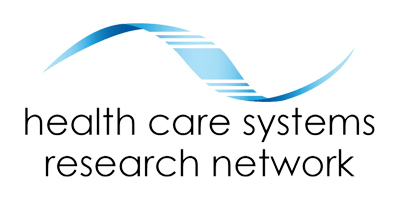Mental Health Research Network
Overview
The mission of the Mental Health Research Network (MHRN) is to improve the management of mental health conditions through a closer connection between research, practice, and policy.
Spanning a wide range of conditions and care that impacts all ages (children, adults, and seniors), the MHRN aims to develop methods for evaluating treatment effectiveness.
Quick Facts
- PI: Gregory Simon, MD, MPH of Group Health Research Institute
- Funding agency: National Institute of Mental Health
- Year funded: 2010
- Related studies funded, since inception: 8
- Website: mhresearchnetwork.org
Primary Investigator

Gregory Simon, MD, MPH
Key Partners, Projects, & Findings
Participating Research Centers
- Center for Applied Health Research, Baylor Scott & White Health
- Center for Clinical and Outcomes Research, Kaiser Permanente Georgia
- Center for Health Policy and Health Services Research, Henry Ford Health System
- Division of Research, Kaiser Permanente Northern California
- Department of Population Medicine, Harvard Pilgrim Health Care
- Department of Research and Evaluation, Kaiser Permanente Southern California
- Essentia Institute of Rural Health, Essentia Health
- Group Health Research Institute, Group Health Cooperative
- HealthPartners Institute for Education and Research, HealthPartners
- Institute for Health Research, Kaiser Permanente Colorado
- Palo Alto Medical Foundation Research Institute, Palo Alto Medical Foundation
- The Center for Health Research – Hawaii, Kaiser Permanente Hawaii
- The Center for Health Research – Northwest, Kaiser Permanente Northwest
Additional partners
- University of Colorado
- Emory University
- University of California – San Francisco
MHRN Core Projects
-
Practice variation in high- and low-value care for mood disorders – This work will advance knowledge regarding variation in mental health care and develop methods for future effectiveness studies.
-
Feasibility of behavioral activation therapy for perinatal depression –This project will both evaluate feasibility of an innovative intervention and test new methods to increase the efficiency of future effectiveness trials.
-
A geographically and ethnically diverse autism registry for effectiveness studies –This project will both advance knowledge regarding diagnosis and treatment of autism and establish a registry and specimen repository to support effectiveness research.
-
Longitudinal analysis of SSRI warnings and suicide in youth –This study will both help clarify the relationship between antidepressant use and suicide risk and develop methods for future policy and implementation research.
-
Pragmatic trial of automated outreach following unplanned discontinuation of antidepressant medications
-
Effectiveness trial of EHR-based decision support and nurse care management to reduce cardiovascular risk factors in people with severe mental illness
-
Pilot study of feasibility and acceptability of mobile-device-based in-vivo assessments during depression treatment.
-
Developing methods to improve biospecimen collection among children and youth with severe mental health conditions
Related Research Projects
- NIMH-funded 5-site R01 regarding early detection of first-episode psychosis.
- NIH Collaboratory-funded 3-site pragmatic trial of population-based outreach to prevent suicide attempt.
- NIMH-funded supplement to examine racial and ethnic disparities in depression care.
Selected key Findings
- The FDA safety advisory regarding increased risk of suicidal behavior after starting antidepressant medication was followed by a significant decrease in antidepressant use by adolescents and young adults – and by a significant increase in risk of suicide attempt.
- Responses to routinely administered PHQ9 depression questionnaires are a strong predictor of subsequent suicide attempt and suicide death – and this holds true across different treatment settings, age groups, and racial/ethnic groups.
- Behavioral activation psychotherapy significantly improves symptoms of depression in pregnancy.
